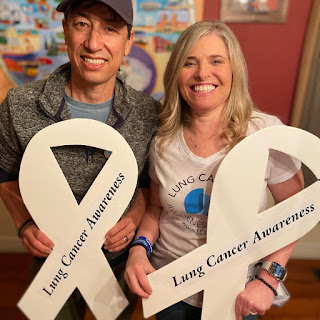Betting On Great Researchers
Have you ever met someone that just gives you a sense of confidence that anything is possible? I've met many researchers over the years and some of them just fill me with such hope that I feel that given the funding necessary to advance their ideas, a breakthrough would happen. I don't say this naively to suggest that it's just about money. Because I know that money doesn't solve all problems and in research there is no sure bet. But in medical research, often times good ideas stay in the minds of scientists due to lack of sufficient resources to do the experiments that could make huge advancements in understanding disease. And with some researchers you can just tell that they have ideas in their head that given the sufficient support there would be huge return. Researchers like Dr. Rudolf Jaenisch.
I have recently come to know Rudolf Jaenisch, a Founding Member of Whitehead Institute at MIT and National Medal of Science recipient. His lab caught my attention when I read this article about how one of his postdoctoral fellows, Shawn Liu "restored activity to the fragile X syndrome gene in affected neurons using a modified CRISPR/Cas9 system they developed that removes the methylation—the molecular tags that keep the mutant gene shut off—suggesting that this method may prove to be a useful paradigm for targeting diseases caused by abnormal methylation." So I decided to contact Dr. Jaenisch and went to meet with him and Shawn Liu. And wow was I impressed with both of them and how they were on to something big!
But what really struck me was that Shawn had developed this tool and he thought Fragile X was the perfect target to test it on, but the lab had no direct funding for Fragile X research. They were able to support this one project and got positive results, but now to take this discovery and move it forward will require more experiments. Bottom line, it will require more money. And without financial support, this line of experimentation will not move forward. Dr. Jaenisch described CRISPR as a tool, but that more work is needed to to tell it what to do. In other words, a promising discovery was made to prove a hunch but how sad it will be if this line of research ends here. He also described how long it would take to get an National Institutes of Health (NIH) grant, but that with smaller increments of funding he could pursue his theory. And that could lead to a larger NIH grant. I've always said this is why disease foundations and philanthropists play such a critical role in funding research.
On a recent visit with Dr. Jaenisch he shared more of his research vision and his passion was contagious. He spoke about collaboration and how big breakthroughs require insights from different areas of research such as biological engineering. For example his eyes lit up when he described how amazing it would be if his friend and colleague Bob Langer at Koch Institute at MIT brought his perspective. I could tell that Dr. Jaenisch really had a road map of what he thought was possible in Fragile X research. And collaboration of different disciplines could bring answers to some of the mysteries that still exist. This is also why I believe places like Boston and Cambridge are so special - there is such a cluster of academic research labs and biotech companies that make if fertile ground for research and development of treatments to help patients. But Dr. Jaenisch, as renowned as he is, still can't bring his Fragile X research to the next level without adequate funding. It would be such a lost opportunity.
Of course this is just another example of similar conversations I've had with cancer researchers like Johnathan Whetstine and so many others. Most people don't know that researchers do not get automatic funding from the institutions where they work. Even places like MIT and Massachusetts General Hospital. Each lab is responsible for it's own funding and has to apply for grants from government sources like NIH or from private sources like FRAXA Research Foundation. The good news is that all of us are fortunate that there are people like Rudolf Jaenisch and Johnathan Whetstine who go to work every day with determination and commitment. I just wish more people could get to know them. Hey, even though I don't fully understand epigenetics or CRISPR I am grateful to know the ones that do!
#research #gratitude

